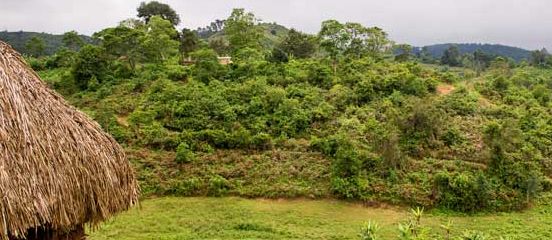News
7 July 2015
New Farm Africa report outlines promising results to making forests pay for local communities

Making forests pay
A new report by Farm Africa shows promising results for the Participatory Forest Management (PFM) approach to forest management that emphasises joint partnerships between local forest communities and government.
Farm Africa’s report, Making forest conservation benefit local communities: participatory forest management in Ethiopia (PDF, 0.5MB), outlines how PFM is proving successful in giving local people an economic incentive to sustainably manage and protect forests.
Satellite imagery from Chilimo, Ethiopia, where Farm Africa’s first PFM pilot was launched 20 years ago, confirms that not only has deforestation been halted, but forest condition has actually been restored.
Farm Africa introduced PFM to replace command and control approaches to protecting forests and rangelands, which failed to control deforestation and habitat destruction.
Instead of trying to protect forests by keeping people out or encouraging them to do other activities, PFM encourages local communities to manage forests sustainably and profitably by setting up forest-friendly businesses.
Dr. Mulugeta Lemenih, Farm Africa’s Head of Forestry and one of the report’s authors, commented:
“In the PFM model, forests are now actively managed, rather than protected, and communities are granted legal rights to produce and market forest products on a sustainable basis.”
Claire Allan, Farm Africa’s Head of Programme Quality & Impact and co-author of the report, added:
“Finding ways to make forests pay is a win-win situation. Not only do local communities reap dividends from profitable forest-based enterprises such as producing honey, mushrooms, raffia and wild coffee, but millions more people are protected from the devastating impacts of forest loss, such as loss of biodiversity, increased carbon emissions and a reduced water supply in lowland areas.”
Today less than 4% of Ethiopia’s land is forested, compared to around 30% at the end of the 19th century.
Global land use changes, including deforestation, contribute nearly one tenth of global greenhouse gas emissions. Providing incentives to halt deforestation, as PFM does, is an important part of the global climate change agreement.




